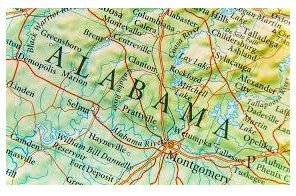
Alabama Governor Kay Ivey signed legislation legalizing medical cannabis on May 17, 2021. Known as the Darren Wesley “Ato” Hall Compassion Act, the law permits the use of medical cannabis to treat certain medical conditions including Crohn’s disease, depression, epilepsy, HIV/AIDs, panic disorder, Parkinson’s disease, persistent nausea, post-traumatic stress disorder, chronic or intractable pain, among others. The law was effective immediately upon signing by the Governor, although medical cannabis will not become available for at least a year.
Medical cannabis may be used in a variety of forms including oral tablet, capsule or tincture; gel, oil, cream or other topical preparations; suppository; transdermal patch; nebulizer; liquid oil for administration using an inhaler. Medical cannabis may not be used by smoking or vaping, or by consuming food products such as cookies or candies. In addition, the law does not permit recreational marijuana use.
The medical cannabis law contains many favorable provisions for employers. Specifically:
- Employers are not required to permit, accommodate, or allow the use of medical cannabis, or to modify any job or working conditions of any employee who engages in the use of medical cannabis or for any reason seeks to engage in the use of medical cannabis.
- Employers are not prohibited from refusing to hire, discharging, disciplining, or otherwise taking an adverse employment action against an individual with respect to hiring, discharging, tenure, terms, conditions or privileges of employment as a result, in whole or in part, of that individual’s use of medical cannabis, regardless of the individual’s impairment or lack of impairment resulting from the use of medical cannabis.
- Employers are not prohibited from establishing or enforcing a drug testing policy, including, but not limited to, a policy that prohibits the use of medical cannabis in the workplace or from implementing a drug-free workforce program established in connection with the state workers’ compensation premium discount law.
- Employers are not prohibited from adopting an employment policy requiring its employees to notify the employer if an employee possesses a medical cannabis card.
- The law does not interfere with, impair, or impede, any federal restrictions on employment, including, but not limited to, regulations adopted by the U.S Department of Transportation.
- The law does not permit, authorize, or establish any individual’s right to commence or undertake any legal action against an employer for refusing to hire, discharging, tenure, terms, conditions, or privileges of employment due to the individual’s use of medical cannabis.
- The law does not require a government medical assistance program, employer, property and casualty insurer, or private health insurer to reimburse an individual for costs associated with the use of medical cannabis.
- The law does not affect, alter, or otherwise impact the workers’ compensation premium discount available to employers who establish a drug-free workplace policy certified by the state’s workers’ compensation premium discount law.
- The law does not affect, alter, or otherwise impact an employer’s right to deny, or establish legal defenses to, the payment of workers’ compensation benefits to an employee on the basis of a positive drug test or refusal to submit or to cooperate with a drug test, as provided in the state workers’ compensation premium discount law.
- An individual who is discharged from employment because of that individual’s use of medical cannabis, or refusal to submit to or cooperate with a drug test, shall be legally conclusively presumed to have been discharged for misconduct if the condition of the workers’ compensation premium discount law are met.
Alabama employers should review the law to determine whether any revisions to drug and alcohol testing policies or other workplace policies will be necessary.
https://www.jdsupra.com/legalnews/alabama-enacts-medical-marijuana-law-4385450/




